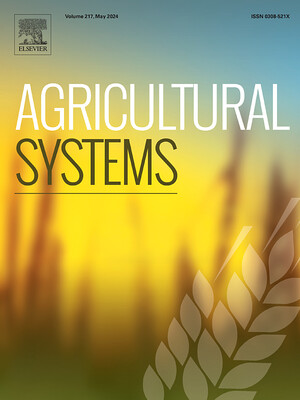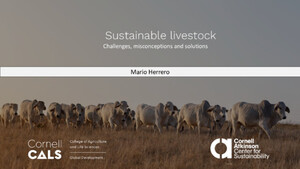
Nitrogen cycling in pastoral livestock systems in sub‐Saharan Africa: Knowns and unknowns
Abstract
Pastoral systems are the dominant livestock production system in arid and semiarid regions of sub‐Saharan Africa (SSA). They are often the only form of agriculture that can be practiced due to unfavorable climate and soil fertility levels that prevent crop cultivation. Pastoralism can have negative impacts on the environment, including land degradation, greenhouse gas emissions and other gases to the atmosphere, soil erosion, water pollution and biodiversity loss. Here, we review the current knowledge on nitrogen (N) cycling, storage, and loss pathways, with an emphasis on identification of N emission hotspots. Our review reports a large uncertainty in the amount of N lost as ammonia from excreta and manure storage, as well as N losses via nitrate and DON leaching. We also found that another major N loss pathway (18%), soil N2 emissions, has not yet been measured. In order to summarize the available information, we use a virtual pastoral farm, with characteristics and management practices obtained from a real farm, Kapiti Research Station in Kenya. For outlining N flows at this virtual farm, we used published data, data from global studies, satellite imagery and geographic information system (GIS) tools. Our results show that N inputs in pastoral systems are dominated by atmospheric N deposition (˜80%), while inputs due to biological nitrogen fixation seems to play a smaller role. A major N loss pathway is nitrogen leaching (nitrate > DON) from pastures (33%). Cattle enclosures (bomas), where animals are kept during night, represent N emissions hotspots, representing 16% of the total N losses from the system. N losses via ammonia volatilization and N2O were four and three orders of magnitude higher from bomas than from the pasture, respectively. Based on our results, we further identify future research requirements and highlight the urgent need for experimental data collection to quantify nitrogen losses from manure in animal congregation areas. Such information is needed to improve our understanding on N cycling in pastoral systems in semiarid regions and to provide practical recommendations for managers that can help with decision‐making on management strategies in pastoral systems in semiarid savannas.
Citation
Carbonell, V., Merbold, L., Díaz‐Pinés, E., Dowling, T.P.F. and Butterbach‐Bahl, K. 2021. Nitrogen cycling in pastoral livestock systems in sub‐Saharan Africa: Knowns and unknowns. Ecological Applications 31(6):e02368.










